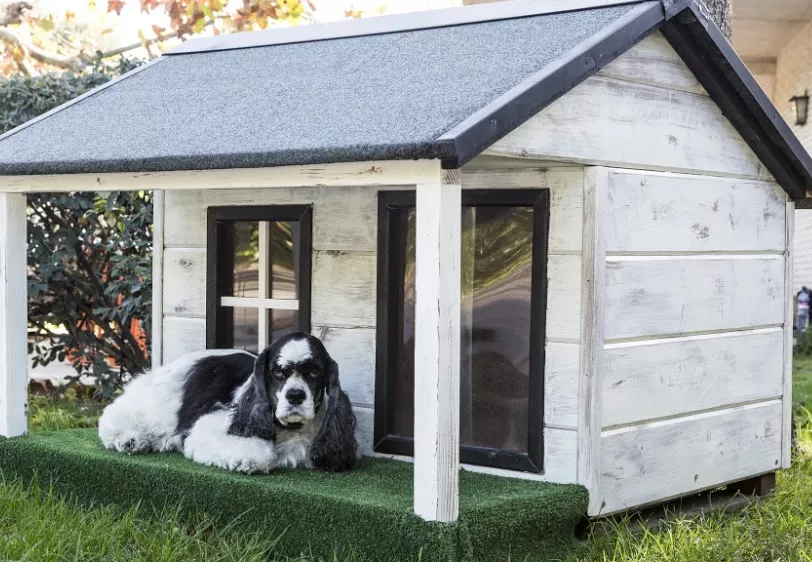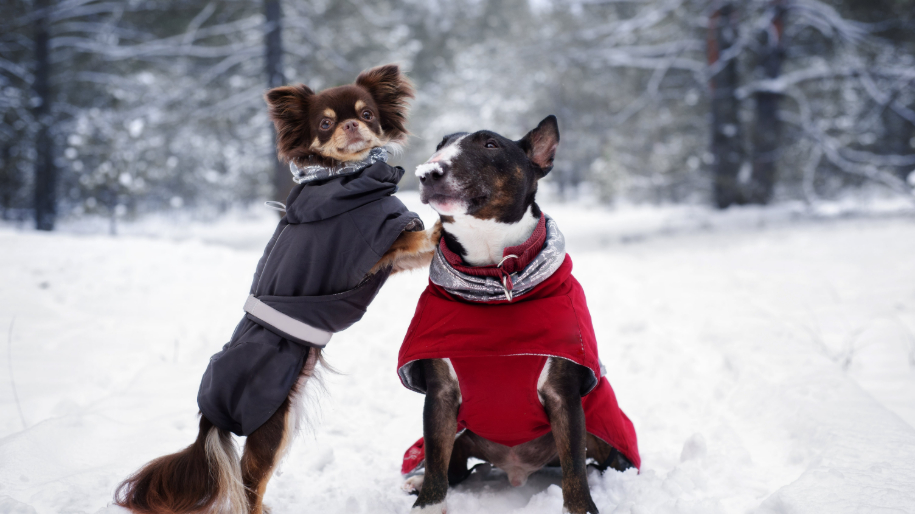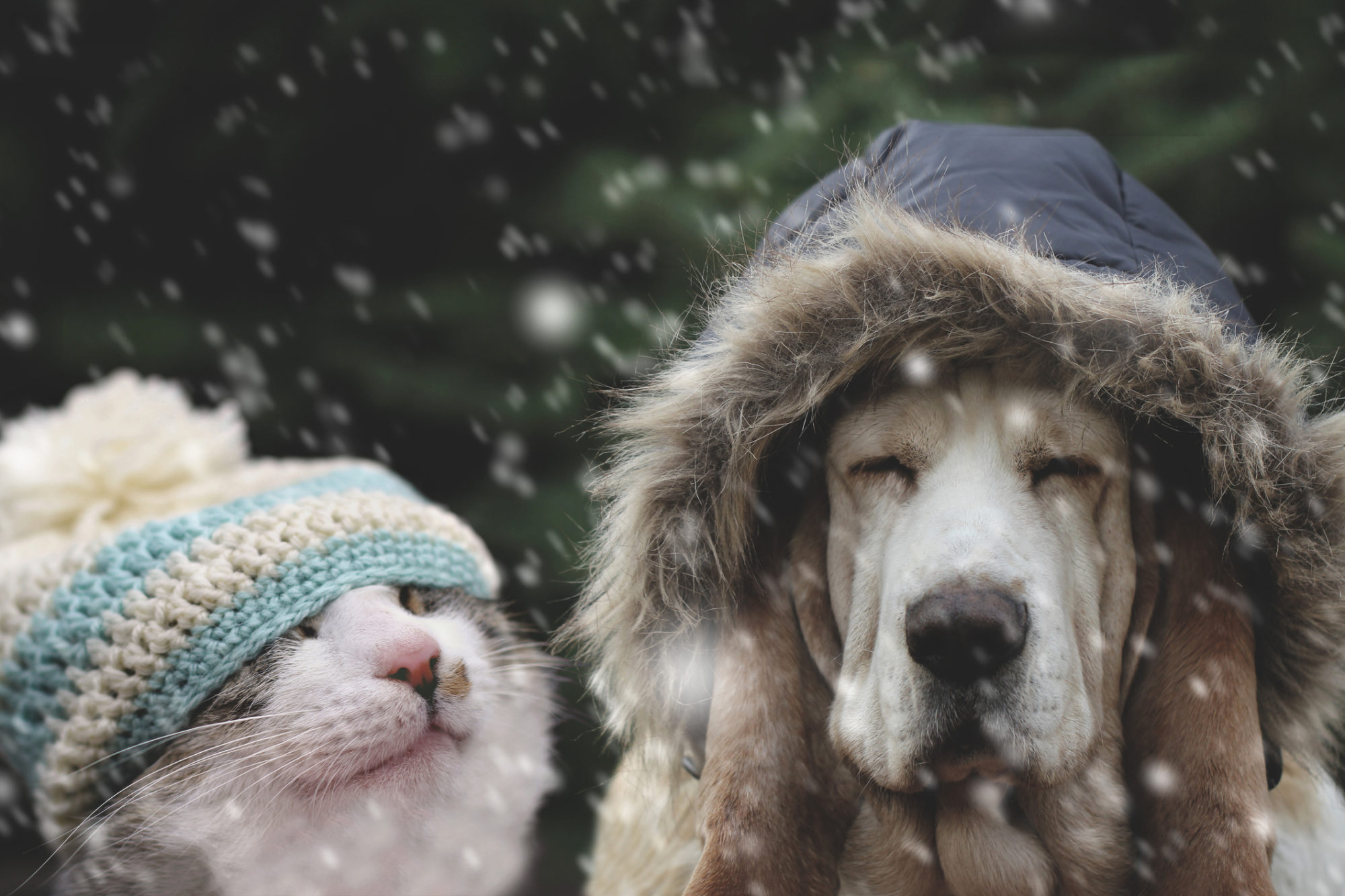Winter is a magical time, but it poses unique challenges for our beloved outdoor pets. As responsible pet owners, it’s crucial to ensure that our furry friends are well-cared for during the colder months. From providing suitable shelter to managing nutrition and addressing health concerns, here’s a comprehensive guide on how to care for outdoor pets in winter.
Winter can be harsh, especially for pets living outdoors. As temperatures drop, it’s essential to understand the specific needs of our furry companions to keep them safe, healthy, and happy.
Outdoor pets face various challenges during winter, including exposure to cold temperatures, lack of proper shelter, and potential health issues. This article will explore effective strategies to address these challenges and ensure the well-being of our Outdoor Pets in Winter.
Table of Contents
Choosing a Suitable Outdoor Shelter

Selecting the right outdoor shelter for your pets is crucial for their well-being, especially during colder months. Here are considerations for two types of shelters and tips to create a cozy environment:
A. Types of Shelters:
- Insulated Dog Houses:
- Features to Look For:
- Quality insulation materials like foam or wood with insulating properties.
- A raised floor to prevent ground contact and heat loss.
- Adequate ventilation to prevent condensation and maintain air quality.
- A weatherproof exterior to protect against rain, snow, and wind.
- Proper sizing to allow the dog to comfortably stand, turn, and lie down.
- Features to Look For:
- Heated Shelters for Small Animals:
- Considerations:
- Choose a shelter size appropriate for the animal’s needs.
- Utilize heated mats or pads designed for outdoor use.
- Ensure the heating elements are pet-safe and not a fire hazard.
- Monitor temperature settings to prevent overheating.
- Regularly check for wear and tear on heating equipment.
- Considerations:
B. Tips for Creating a Cozy Shelter:
- Add Extra Bedding:
- Use blankets, straws, or pet-friendly bedding materials to provide additional insulation.
- Change bedding regularly to maintain cleanliness and dryness.
- Proper Placement:
- Position shelters away from direct wind exposure.
- Place shelters on elevated surfaces to prevent water accumulation.
- Consider the path of the sun to maximize natural warmth.
- Regular Maintenance:
- Inspect shelters routinely for any damage or wear.
- Clean shelters to remove dirt, debris, and any potential health hazards.
- Ensure door flaps are intact and functioning properly.
- Provide Adequate Ventilation:
- While insulation is important, proper ventilation prevents moisture buildup.
- Use shelters with vents or openings that don’t compromise warmth.
- Monitor Pet Behavior:
- Observe your pets for signs of discomfort or stress.
- Adjust bedding or make modifications based on your pets’ preferences.
- Water and Food Provisions:
- Ensure there’s a nearby source of unfrozen water.
- Provide food in a way that minimizes exposure to the elements.
By carefully selecting a suitable shelter and implementing these tips, you can create a comfortable and safe outdoor space for your pets, promoting their well-being during various weather conditions.
Providing Adequate Nutrition
Adjusting food intake for winter is crucial to meet the specific needs of Outdoor Pets in Winter. Pets, especially those spending more time outdoors, may require additional calories to maintain their body temperature. Consider increasing the portion size or providing a slightly higher calorie content in their meals.
In colder weather, pets burn more energy to stay warm. Monitor your pet’s weight and adjust their food intake accordingly. Consult with your veterinarian to determine the appropriate amount of food based on factors such as size, breed, activity level, and the severity of winter weather in your region.
Supplementing with essential nutrients is another important aspect of winter pet care. Cold weather can affect the absorption of certain nutrients, and pets may not receive all the necessary vitamins and minerals from their regular diet alone. Explore supplements that can address potential deficiencies.
However, it’s crucial to consult with your veterinarian before introducing any supplements into your pet’s diet. They can guide your pet’s specific needs based on their health condition, age, and breed. Avoid over-supplementation, as excessive amounts of certain nutrients can adversely affect your pet’s health.
Hydration Management
Hydration management is vital in winter to prevent dehydration in pets.
To address freezing water concerns, implement strategies to keep water from freezing, ensuring pets have constant access to fresh liquid water.
Additionally, monitor your pet’s hydration needs by recognizing signs of dehydration and establishing a routine to track their water intake during the winter months. This proactive approach contributes to your pet’s overall well-being in colder weather.
Winter Clothing for Pets

Winter clothing for pets is essential, and understanding the types available is crucial.
Various options, such as insulated jackets and protective booties, cater to pet needs. Selecting the right attire is key to ensuring their comfort during colder months.
When choosing winter clothing, consider your pet’s breed and size. Tailor the attire to meet their specific requirements, and this section guides on selecting suitable clothing for a range of Outdoor Pets in Winter.
Regular Veterinary Check-ups

Regular veterinary check-ups are vital for maintaining your pet’s well-being, especially during winter.
Winter health check-ups are essential in identifying and addressing potential issues before they escalate, ensuring your pet is adequately prepared for the colder months.
Discuss specific winter health concerns, like arthritis or respiratory issues, with your vet during these check-ups. Implementing preventive measures based on their guidance is crucial for proactive and comprehensive care for your pet.
Daily Exercise Routine
Maintaining a daily exercise routine for pets is crucial, even in winter.
For indoor activities, create an engaging routine that includes interactive games and exercises, considering the limitations of outdoor options during colder months.
When venturing outdoors, prioritize safe activities for your pet. Explore snowy walks and interactive games that keep them active while minimizing risks associated with the cold weather. This dual approach ensures your pet stays fit and healthy throughout the winter season.
Grooming Practices
Effective grooming practices are essential for winter pet care.
For different pets, adapt grooming based on their coat type and breed to prevent matting and skin issues. This includes understanding the unique grooming needs of each pet during colder months.
Address common winter concerns such as dry skin and fur by incorporating specific grooming practices. This section offers tips to maintain your pet’s skin and fur health, ensuring they stay comfortable and well-groomed throughout the winter season.
Recognizing Signs of Cold Stress
Recognizing signs of cold stress in pets is essential for their well-being.
Behavioral indicators, such as shivering or seeking warmth, serve as crucial signals of discomfort. Being attentive to these cues allows pet owners to identify and address cold stress promptly.
Understanding physical signs, such as frostbite or lethargy, is equally important. Recognizing these manifestations enables proactive measures to alleviate your pet’s discomfort during cold weather. Regular monitoring and quick response contribute to ensuring your pet’s health and comfort in colder conditions.
Conclusion – Outdoor Pets in Winter
Caring for your Outdoor Pets in Winter involves a comprehensive approach to address their unique needs in colder conditions. From selecting suitable shelters to adjusting nutrition and recognizing signs of discomfort, responsible pet ownership ensures your furry friends stay safe, healthy, and content during the colder months. By considering factors like adequate shelter, nutrition, hydration, clothing, veterinary check-ups, exercise, grooming, and recognizing signs of cold stress, you can create a holistic and effective winter care plan for your beloved pets. Taking these steps ensures that your outdoor companions thrive even in the face of winter challenges, promoting their overall well-being and happiness.





















